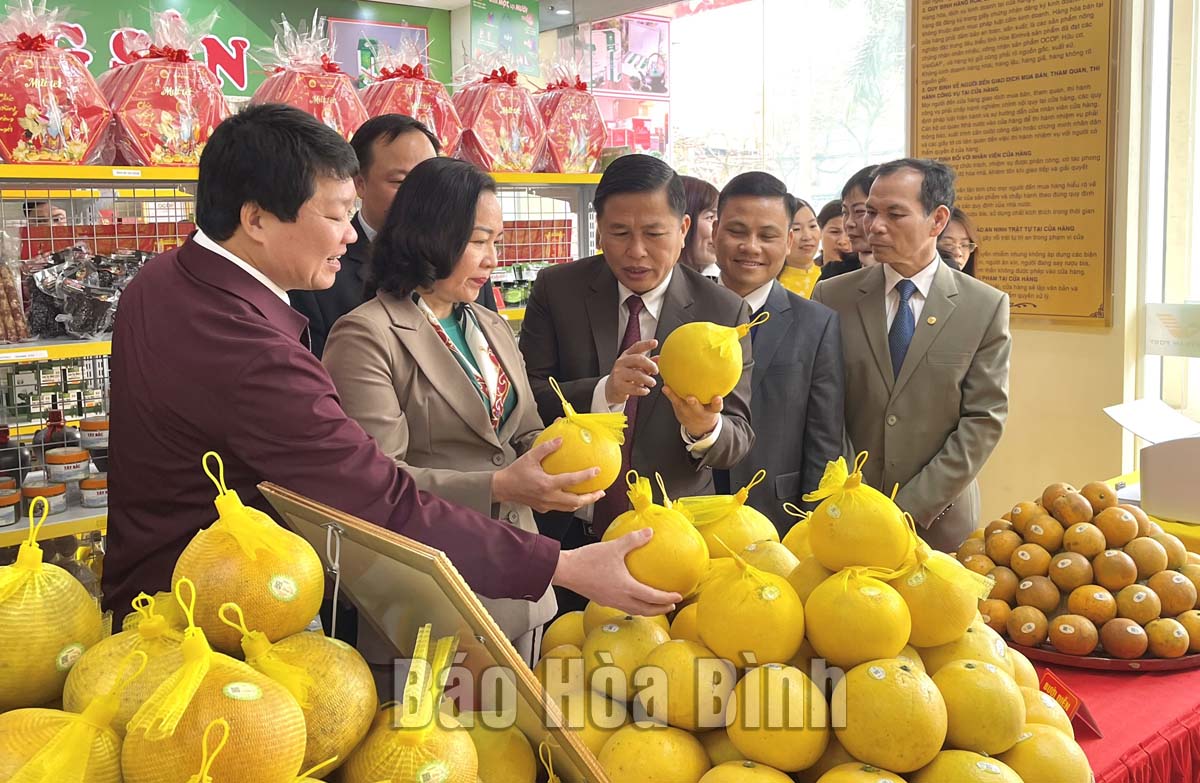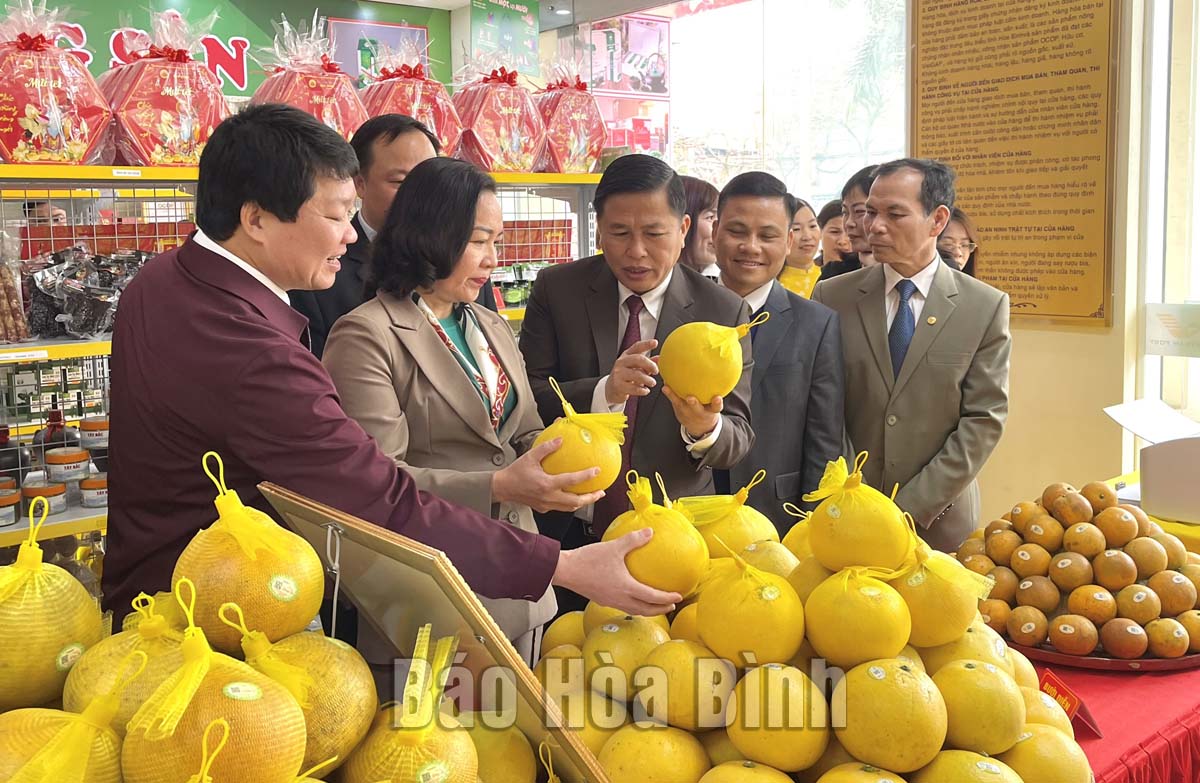
(HBO) - On December 21, the Provincial Farmers' Union and the Provincial Post Office coordinated to organize the opening of a typical store of agricultural products - OCOP in Hoa Binh province in 2022. There were Mr. Nguyen Thi Cam Phuong, the Vice President of the Standing Provincial People's Council, Mr. Dinh Cong Su, the Vice Chairman of the Provincial People's Committee attending the opening ceremony.

The delegates were visiting the
booth at typical store of agricultural products - OCOP in Hoa Binh province.
In the past two years, the
Provincial Post Office has cooperated with the Provincial Farmers' Union to open
27 training classes for nearly 1,000 production and business households,
creating 1,000 trading accounts on the e-commerce platform, and supporting the
delivery of more than 2,805 products of production - business households,
cooperatives and enterprises on the e-commerce platform postmart.vn. In
addition, the Provincial Post Office is supporting the households to consume
OCOP products through the postal shops such as: the vermicelli in Da Bac, Hoa
Binh city, 3-star Ngoc Han chicken eggs, Lac Son chicken eggs, Son Thuy longan,
Lac Thuy dragon fruits, Cao Phong oranges, Tan Lac pomelos...
The typical store of agricultural
products– OCOP is located at Hoa Binh Post site, Hoa Binh City Post Office, as
affiliated unit of the Provincial Post Office. Here, 39 agricultural products
with beautiful designs of high quality, reasonable prices, and clear origins
are displayed. They include green vegetables, safe fruits and vegetables,
honey, and the products from agricultural products of different localities
inside and outside the province. The store connecting the consumption of the
safe agricultural products, which is opened in the area, is a reliable address
for consumers to use clean and safe agricultural products of high-quality,
contributing to the introducing and promoting the agricultural products and
selling the typical regional agricultural products of the farmers inside and
outside the province.
Also, at the opening ceremony,
the representatives of the units have signed a commitment to supply and trade
OCOP agricultural products for the store.
According to data from the Hoa Binh Provincial Party Committee, the industrial production index for the first six months of 2025 is estimated to have increased by 20% compared to the same period last year. This marks the highest year-on-year growth rate for this period since 2020.
In the first six months of 2025, Hoa Binh province’s export turnover was estimated at 1.145 billion USD, marking an 18.11% increase compared to the same period in 2024. Import turnover was estimated at $ 804 million, a 17.15% increase, which helped the province maintain a positive trade balance.
The lives of the ethnic minority farmers in Tan Lac district have gradually improved thanks to the new directions in agricultural production. This is a testament to the collective strength fostered through the professional associations and groups implemented by various levels of the district’s Farmers’ Union.
With the motto the "product quality comes first,” after nearly one year of establishment and operation, Muong village’s Clean Food Agricultural and Commercial Cooperative, located in Cau Hamlet, Hung Son Commune (Kim Boi district), has launched reputable, high-quality agricultural products to the market that are well-received by consumers. The products such as Muong village’s pork sausage, salt-cured chicken, and salt-cured pork hocks have gradually carved out a place in the market and they are on the path to obtaining the OCOP certification.
In the past, the phrase "bumper harvest, rock-bottom prices" was a familiar refrain for Vietnamese farmers engaged in fragmented, small-scale agriculture. But today, a new spirit is emerging across rural areas of Hoa Binh province - one of collaboration, organisation, and collective economic models that provide a stable foundation for production.
Maintaining growing area codes and packing facility codes in accordance with regulations is a mandatory requirement for agricultural products to be eligible for export. Recently, the Department of Agriculture and Environment of Hoa Binh province has intensified technical supervision of designated farming areas and packing facilities to safeguard the "green passport" that enables its products to access international markets.



